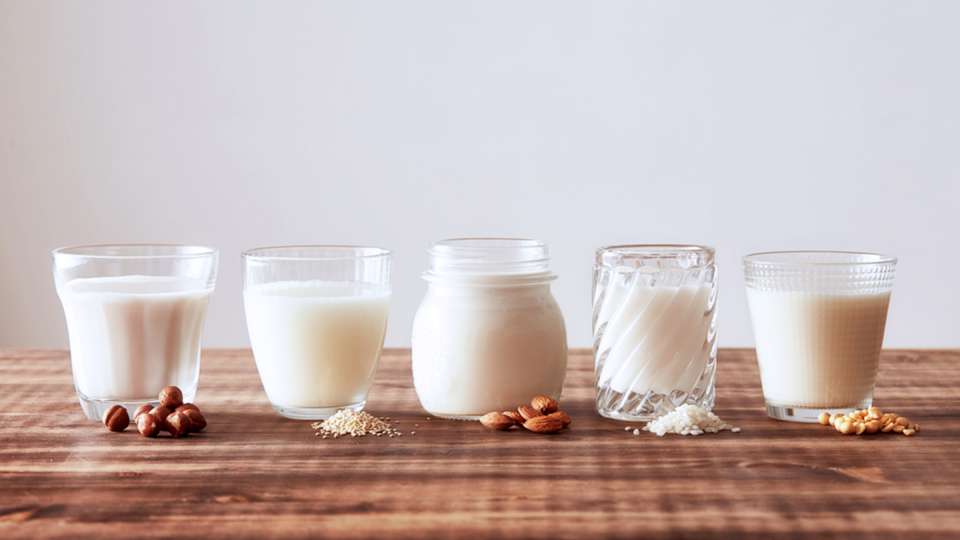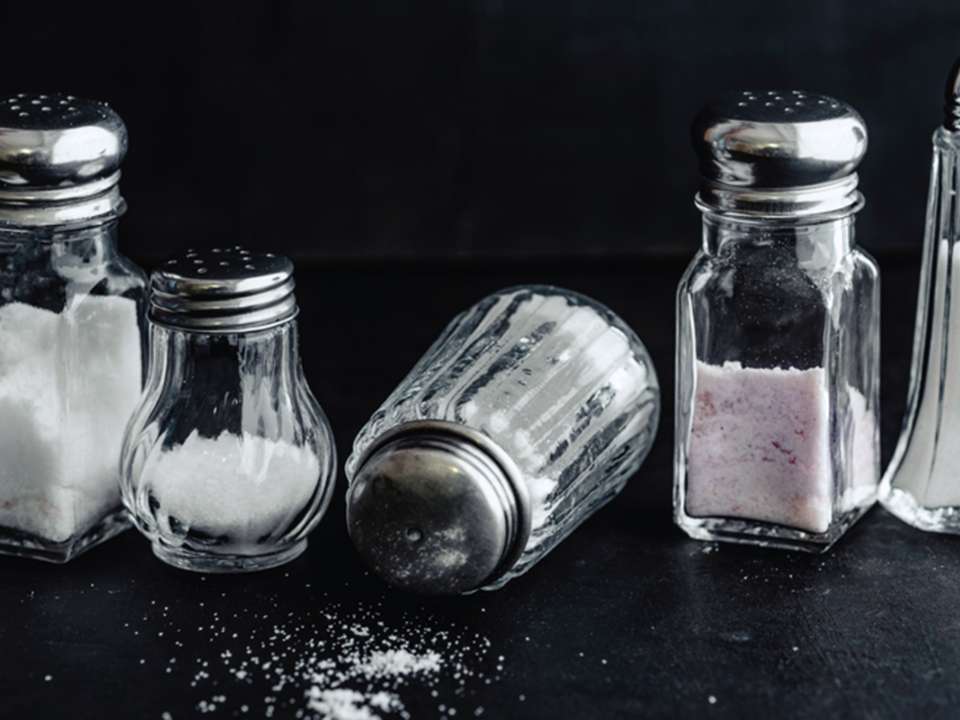
So you’re thinking of switching from dairy milk to a plant milk. Maybe it’s for health reasons, or maybe you’ve heard about how much dairy impacts the environment and you want to be more sustainable. Or maybe you’re tired of lactose making you gassy.
You’re definitely not alone: In 2017, the non-dairy milk industry was estimated to be worth nearly $2.5 billion.
But with no shortage of non-dairy milk options out there, finding the healthiest and most sustainable one can feel overwhelming. We’re here to help.
Before you choose a non-dairy milk
First, a word of caution: Many milk alternatives contain lots of added sugar, says registered dietitian nutritionist Judy Simon, who sees patients at the Nutrition Clinic at University of Washington Medical Center – Roosevelt. She recommends examining the ingredients before buying.
“Plant milks can be great choices, but you want to find the ones that have the most nutrients and the least amount of additives,” she explains.
Aside from added sugars, plant milks can also contain things like carrageenan or other thickeners that can cause possible inflammation or other abdominal distress for some people.
Some alternative milks are fortified with nutrients the way cow’s milk is, but some aren’t.
Should you give up dairy?
Before you swear off cow’s milk completely, it’s a good idea to think about your reasons for wanting to go dairy milk-free.
If you’re vegan or lactose intolerant (or have some other health consideration), it may make the most sense. But for other people there’s no significant health reason why they should avoid dairy milk, Simon says.
“Few plant-based milks can match it in nutrition,” she says.
Along with protein, dairy milk is full of calcium, potassium and B vitamins, and is usually fortified with vitamins A and D. It can be hard to find an alternative milk that matches up.
Dairy milk does take a larger toll on the environment, however. It requires much more water to produce than things like soy or oat milk.
Almond milk
We all love almond milk because it tastes good and is low in calories. And we’ve been taught to believe it’s healthy.
Spoiler alert: it’s not.
Simon says many of her patients tell her that they like to drink almond milk because they think it’s full of protein. They are then in for an unpleasant surprise when she asks them to look at the nutrition label.
Almond milk often contains only a gram or two of protein per serving, whereas dairy milk contains seven or eight grams per serving.
“Almonds are great sources of protein when you’re eating them or when you’re eating almond butter, but I think what people don’t realize is there’s not much almond in the almond milk,” she says.
The sad truth is that almond milk is mostly water. And it also takes a lot of water to produce — more than other plant milks.
Also, you may have heard by now that almond milk is evil because it stresses honeybees and contributes to colony collapse. So not only is almond milk lacking in the health department, it’s not great for the environment, either.
Soy milk
Ah, soy. You’ve probably heard some negative things about soy, most of which are overblown. In fact, as far as non-dairy milks go, soy milk has the most protein — as much as cow’s milk.
Most soy milk brands, as long as they’re unsweetened, are pretty comparable to dairy milk for overall nutrition content, Simon says.
Unfortunately, soy is also one of the eight major food allergens identified by the Food & Drug Administration. But if you aren’t allergic to it, it’s one of the most nutritious milk alternatives.
Oat milk
Favorite of hipsters everywhere, oat milk is having a major moment. But does its nutritional content match up?
In many ways, yes. Oat milk has more protein than almond milk (though not as much as soy milk) and also offers a small amount of fiber — which can be helpful, since most people don’t get enough fiber in their diets.
Oat milk is also pretty sustainable, requiring way less water than almond milk and dairy milk and creating fewer emissions.
So if you’re one of those people who is naturally averse to trends, maybe let up a bit in this case and give oat milk a try.
Pea protein milk
One of the newer milk alternatives out there, pea protein milk may sound odd (who wants to drink peas?!) but is actually a pretty solid and tasty option if you’re looking for a new non-dairy milk to try.
Like almond milk, pea protein milk is low in carbs. It’s often fortified with vitamins and minerals and can have almost as much protein as cow’s milk or soy milk, though you should watch out for added sugars.
Additionally, many pea protein milks are combined with nut milk to amp up nutrition content. For Simon, this is a pretty solid option that is a healthy dairy milk alterative for many people.
Coconut milk
Like almond milk, Simon says lots of her patients assume coconut milk is packed with nutrients.
“I believe it has a health halo: People visualize a coconut being very healthy,” she explains.
Also like almond milk, coconut milk leaves a lot to be desired. It has no protein. It has fewer vitamins and minerals than other milks — no calcium, for one.
It’s also high in saturated fat. While you don’t need to cut saturated fats out of your diet completely, it’s a good idea to limit them. A diet high in saturated fats has long been linked to a higher risk for heart disease.
If you love the coconut flavor and want to indulge, however, Simon suggests thinking of coconut milk more like a creamer than a milk and adjusting how much you use accordingly.
Hemp milk
If alternative milks were people, hemp milk would be a wallflower. It doesn’t draw much attention to itself and it’s a little weird, but it also has more to offer than you may think.
While you have to watch out for added sugars, hemp milk does have more protein than almond milk, though still only half as much as dairy milk. It has lots of other vitamins and minerals, too.
So what’s stopping everyone from jumping on the hemp milk bandwagon? Well, probably the taste. Hemp milk has a rich, nutty flavor, which some people think of as “earthy” and others think of as “like dirt.”
Your call.
Rice milk
You’ve probably seen rice milk in the store. While naturally sweeter, rice milk also doesn’t pack much of a protein punch — and it can contain arsenic. (Disturbing much?!)
That’s because rice itself absorbs more arsenic than other crops. It’s probably not an issue if you’re eating rice — or drinking rice milk — in moderation, but it might be a good excuse not to chug rice milk like it’s going out of style.
Other nut milks
There’s a slew of other nut milks out there — cashew, hazelnut and macadamia, to name a few — but, like almond milk, they don’t have much protein and aren’t necessarily the healthiest options, Simon says.
If you insist on being fancy and drinking a specialty nut milk, make sure it at least isn’t full of sugar and has some vitamins and minerals.
The bottom line
Dairy milk is still on top when it comes to nutritional value, but if you really don’t want to drink it (or can’t) then soy, oat and pea protein milk are some healthy alternatives. Other milks aren’t necessarily bad for you as long as they’re part of a balanced diet.

 Healthy ideas for your inbox
Healthy ideas for your inbox





